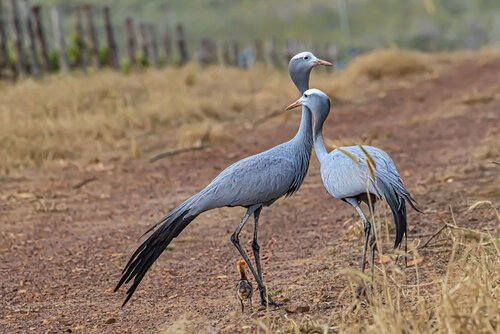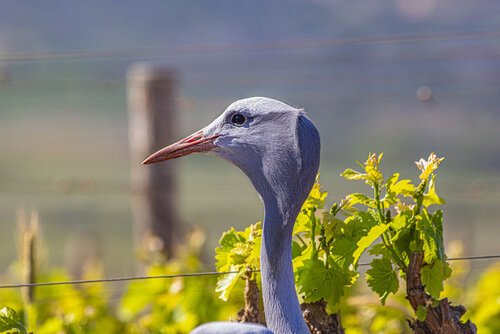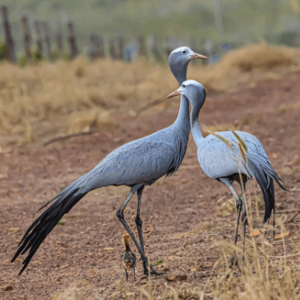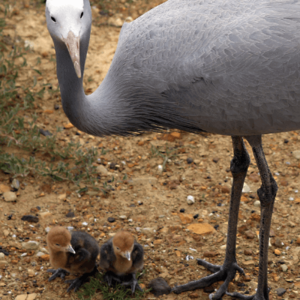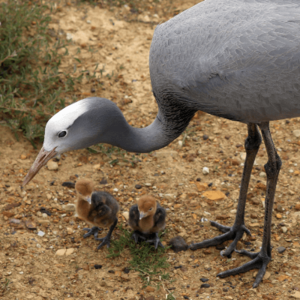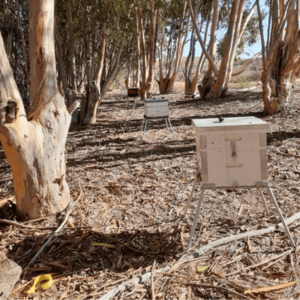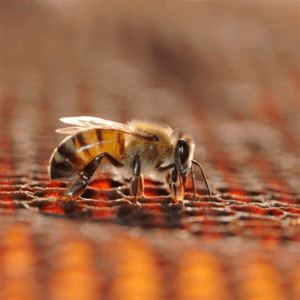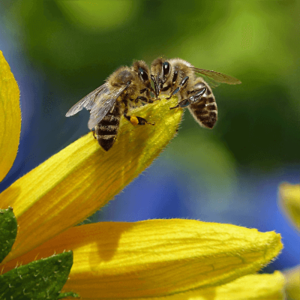Best Sustainable Wine Destination, Bee Friendly and Home to the Blue Crane
Best Sustainable Wine Destination
Benguela Cove Lagoon Wine Estate has won the African Excellence Award in the category Best Sustainable Wine Destination, Western Cape, organised by MEA Markets. The estate is home to many threatened species such as the Blue Crane and Cape Honeybee, which is of great importance as a pollinator in our farming landscapes.
The vineyard and residential estate, located just outside Hermanus, has made it their mission to provide visitors with the most eco-friendly wine experience possible and to produce the finest wines from its vineyards. Owner Penny Streeter OBE can add this latest prize to a number of recent accolades, which included the 2020 South African Wine and Food Tourism Award for Innovation.
The African Excellence Award reflects the commitment to the standards championed by Wines of South Africa (WoSA) to meet its Sustainable Wine South Africa (SWSA) programme.
Blue Crane Breeding Ground at Benguela Cove
At Benguela Cove there are 65 hectares under vine, where the maritime climate offers a terroir that produces grapes of distinctive quality and a sanctuary for an extraordinary range of wildlife. As part of the UNESCO-designated Kogelberg Biosphere Reserve in South Africa, the vineyard borders the Atlantic coastline and Bot River lagoon and is home to many species that are threatened in South Africa and other countries.
This includes the blue crane, also known as the Stanley crane and the paradise crane, the national bird of South Africa. There are some 26,000 remaining, following a sudden population decline from around 1980 and it is now classified as ‘vulnerable’ as a species. The South African government has stepped up legal protection for the blue crane - other conservation measures are focusing on research, habitat management, education, and recruiting the help of private landowners, such as at Benguela Cove. Many blue crane pairs have made their home at Benguela Cove’s specially demarcated breeding areas.
Cape Honeybees - Important Residents at the Estate
The Cape honeybee is a valued resident of the estate too. It is an important pollinator of flowering plants, including many Fynbos species. Honeybees are used to pollinate about 50 crop varieties across South Africa, including fruit and vegetables found in the Cape region - so they are vital to the agricultural economy.
The bees are experiencing threats that include diminishing forage resources, pests and diseases, as well as problems arising from misuse of pesticides and insecticides in the environment, says the South African Biodiversity Institute (SANBI).
This is just one reason why Benguela Cove follows sustainable farming practices, including the guidelines of the Integrated Production of Wine (IPW). This ensures farming with environmentally friendly methods and without using harmful chemicals.
The vineyard operates a weather station to micromanage the farming programme. It gives Downey Mildew and Oidium pressure indicators to enable the managers to plan vineyard sprays according to disease threats and avoid unnecessary treatment. There are also biological control agents to eliminate Mealy Bug, which is responsible for introducing the roller leaf virus, which can disrupt the flow of nutrients to shoots, leaves, and vine fruit.
Benguela Cove is gaining a reputation internationally as a top ecotourism destination and champion of sustainable vineyard farming. Visitors can experience wine-tasting pontoon tours on the beautiful lagoon and dining at the popular Moody Lagoon restaurant - whilst residents on the estate can enjoy this very special place year-round, with plots and properties available now to purchase direct from the developer.

